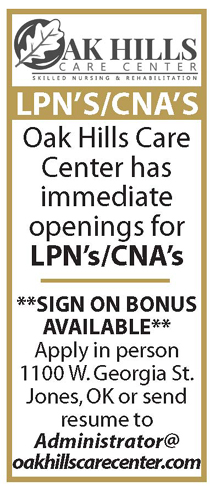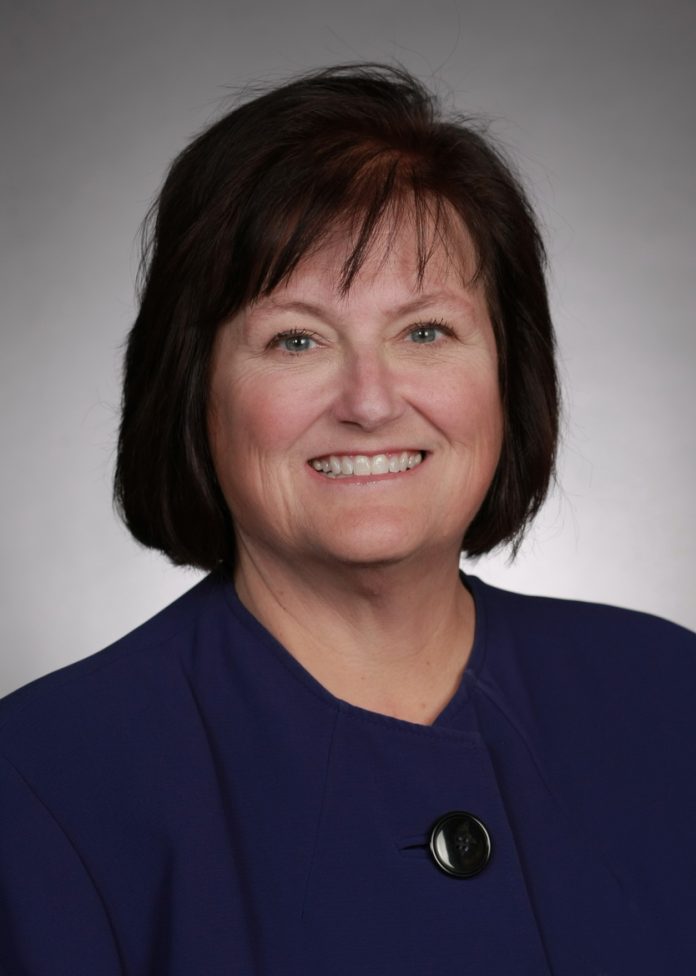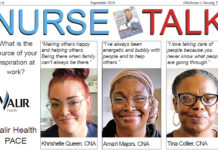
Former State Representative Lee Denney and Anne Roberts, Director of Legislative Affairs at INTEGRIS, were recently honored by the American Music Therapy Association at a national conference held in St. Louis, Mo.
The pair received the Music Therapy State Advocacy Award for creating House Bill 2820, which requires music therapists in Oklahoma to be licensed and regulated through the Oklahoma State Medical Licensure Board. The bill passed in 2016 and is now called the Music Therapy Practice Act. The intent of the legislation was to stop unregulated practice that could potentially put the public at risk by establishing a state-based protection program that would ensure music therapy be provided by individuals who meet specific educational, clinical and credential qualifications.
Denney wrote the bill, while Roberts marshaled the bill through the legislative process, using real-life examples of music therapy success from INTEGRIS Jim Thorpe Rehabilitation.
Lee Denney, Former State Rep. Anne Roberts, Director of Legislative Affairs at INTEGRIS “Since 1996, Jim Thorpe Rehabilitation has achieved outstanding results utilizing music therapy to help patients with a variety of neurological conditions regain speech and movement,” said Roberts. “Our INTEGRIS team joined with the American Music Therapy Association on an initiative to achieve official state recognition of the music therapy profession.”
Music therapists in Oklahoma work alongside physical and occupational therapists, speech pathologists and psychologists, under a physician’s order, to evaluate and treat patients and participate in their treatment plan. As a result of the new act, in order to receive national certification, music therapists in Oklahoma now must hold a bachelor’s degree or higher in music therapy and 1200 hours of clinical training including a supervised internship. Upon completion, the music therapist is then eligible to sit for the national board certification exam to obtain the Music Therapy-Board Certified (MT-BC) credential required for competent practice.
Suzanne Heppel is a board certified music therapist at INTEGRIS, who appreciates the added credibility and protection the legislation brings to an already noble profession. “Music therapy can provide an array of both cognitive and physical treatment techniques that utilize rhythm, melody and all parts of music to accomplish a therapy goal. From the young teenager learning to stand, talk or walk to the rhythms of the drumbeat, or the retired veteran relearning speech and language from the familiar songs of his youth; music therapy can engage patients across all ages and backgrounds.”
This is only the second time in the 18 year history of the American Music Therapy Association awards program that state advocates for music therapy were recognized in this way.

LPN’s/CNA’s
**SIGN ON BONUS AVAILABLE**
Apply in person
1100 W. Georgia St.
Jones, OK or send resume to Administrator@oakhillscarecenter.com













